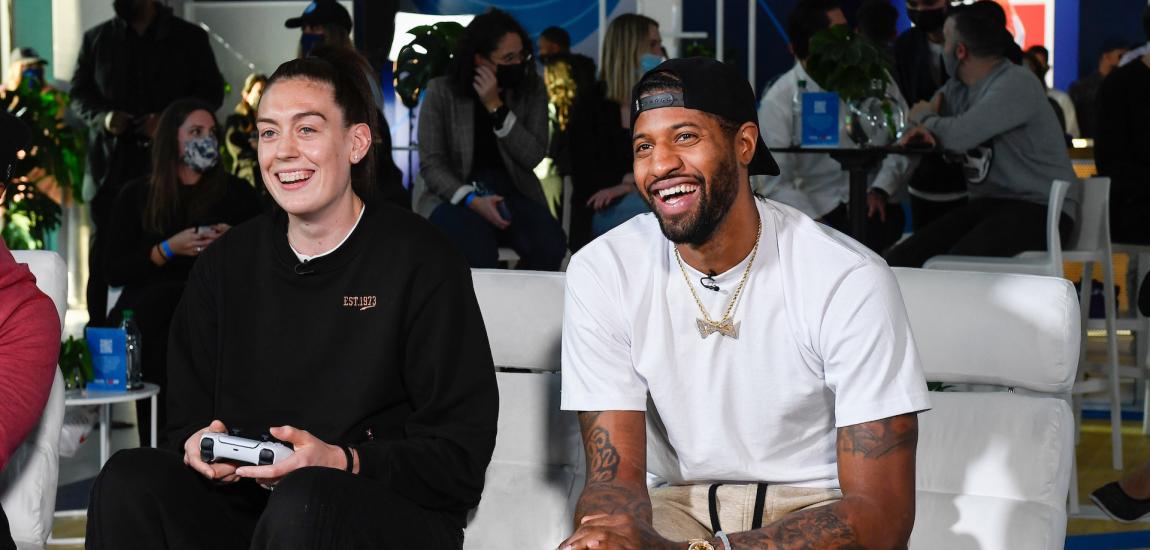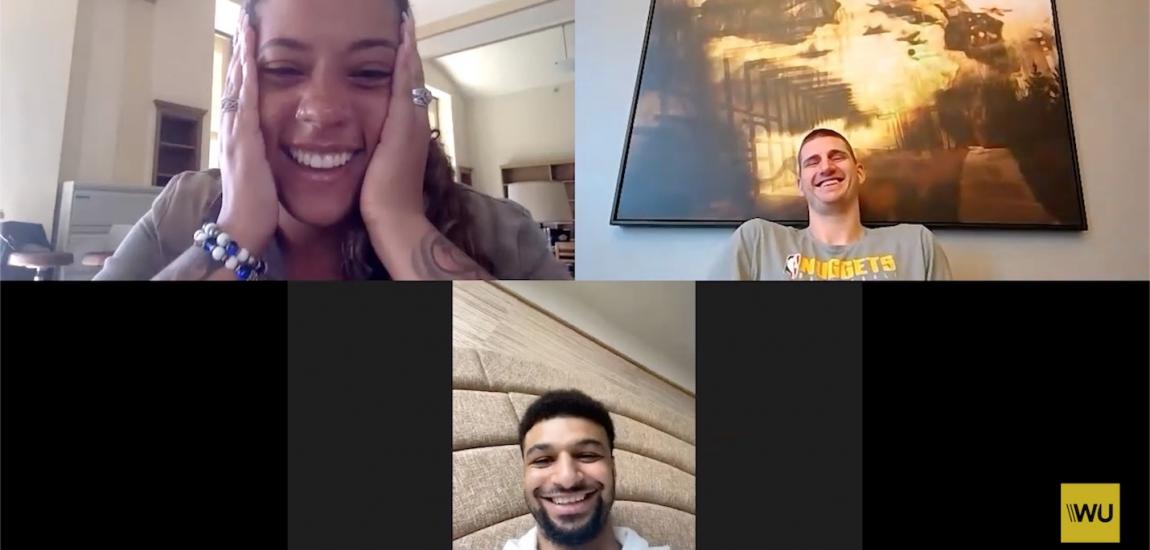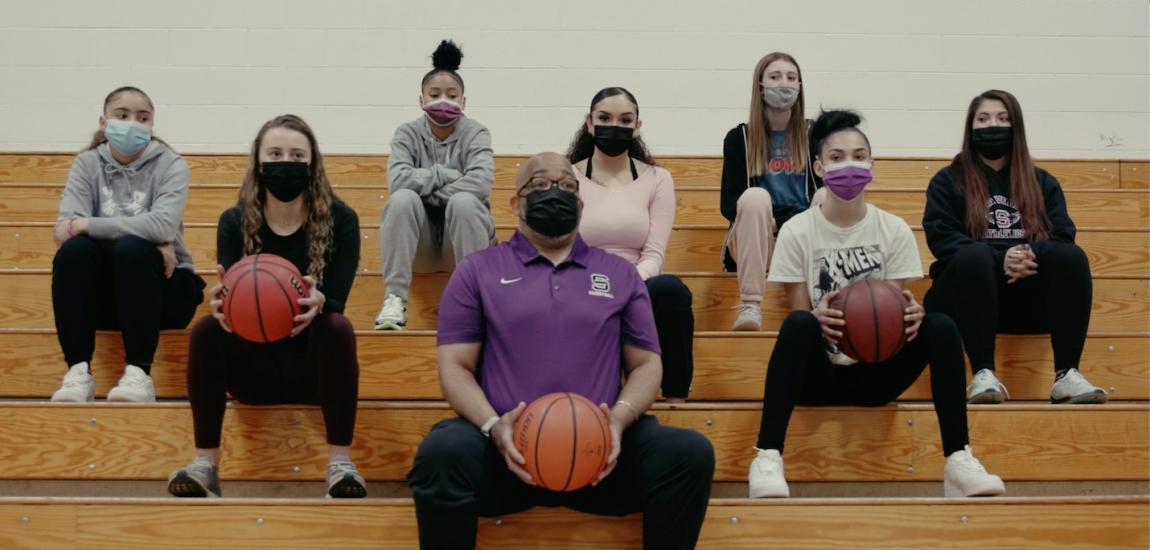Opining about Donald Sterling's infamous comments, rapper Homeboy Sandman took a unique angle in a piece he wrote Monday for Gawker by calling African-Americans "cowards." Among his examples, Sandman, whose real name is Angel Del Villar II, labeled the Clippers players' turning warm-up jerseys inside out as a cowardice form of protest.
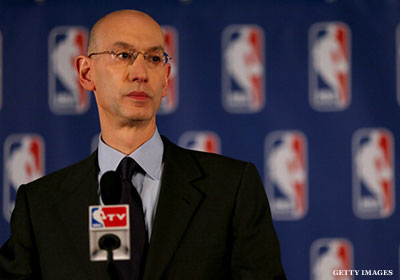
"Let's step it up," he wrote. "If every NBA player who wanted to stand up against racism vowed not to play until the Clippers’ owner resigned, it would be announced that he resigned before you were finished reading this."
On Tuesday afternoon, NBA commissioner Adam Silver took action with support from Kevin Johnson, Magic Johnson and a plethora of others behind the scenes. The lifetime ban instituted by Silver and the universal endorsement of his decision sent a message to the NBA and the rest of the world: Racism is not welcome. Not for the lower class, not for the middle class, not for the upper class. And certainly not for the rich and powerful.
To use Sandman's choice of words, this was not the cowardly response that he is used to seeing.
Last week, Sterling owned an NBA franchise reportedly worth $575 million in the second-most populated city in the country. According to Forbes, there are only 973 people in the world wealthier than Sterling. But forget that Sterling is worth $1.9 billion. He was living the dream of many sports fans. He owned a professional franchise. For 41 nights and the preseason and postseason, thousands of people packed Staples Center to pay to watch Sterling's team. They watched the organization he ruled. He had the power.
On Tuesday, Silver and the NBA took that power away. It had nothing to do with anything illegal. Sterling did not commit a crime and he was clean with money (although Clippers fans may say the way he used his money was a crime).
Sterling was banned from the NBA due to racist comments that could have been uttered in his own bedroom for all we know. What we do know (confirmed by Silver) is he said them. What we do know is Sterling will never attend another NBA game as long as he lives.

We like to fool ourselves into thinking racism is dead, especially in sports, and perhaps the cowardly attitude that Sandman cited is part of the issue.
It was just 11 months ago Sergio Garcia said he would "serve fried chicken" when having Tiger Woods over for dinner during the U.S. Open. Garcia played in the U.S. Open and the PGA Tour had no comment on the incident. The PGA Tour's response is especially concerning, considering Fuzzy Zoeller made an almost identical remark to Woods 16 years earlier. Both times, direct apologies to Woods were the only responses (although Zoeller did lose multiple sponsors).
Speaking of Woods, in 2008, The Golf Channel's Kelly Tilghman joked other golfers should "lynch" Woods. Her punishment? A two-week suspension.
In February 2013, AC Milan Vice President Paolo Berlusconi called Mario Balotelli "the family's little n*****". He said this was meant to be "affectionate."
Of course, last June, Philadelphia Eagles wide receiver Riley Cooper, at a Kenny Chesney concert, exclaimed, "I will fight every n***** here." Cooper was fined and sent to counseling for two days.
At the 2008 Olympics, the Spanish Basketball Team made a direct racist crack at the entire Chinese race. Many of the players defended the photo. The Spaniards won a silver medal.
In December 1999, John Rocker referred to teammate Randall Simon as a "fat monkey." To Simon's credit, he had trouble accepting Rocker's apology.
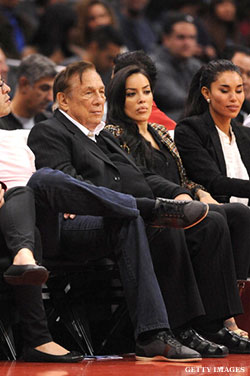
Even in the 21st century, racism exists. But more importantly, punishments were limited to suspensions, fining and condemnation.
Silver, in just his third month as NBA commissioner, reached as far as he could to the other side of the spectrum. In a sport where the term "max contract" is tossed around in common conversation, Silver gave the maximum penalty.
Max suspension (life ban), max fine ($2.5 million) and max condemnation (Sterling leaves the sport labeled "a racist").
Current and retired players celebrated, the owners applauded, the media nodded and Twitter rejoiced because the decision, from a human sense, was so obvious.
Should Silver be labeled a hero? Not exactly. Yes, he pulled the trigger, but there were some blatant factors. Silver was under pressure from the players' union and the teams playing in the postseason. The idea of players boycotting playoff games was spreading. Meanwhile, sponsors were pulling their association with the Clippers.
It is easy to criticize David Stern for ignoring Sterling's racism for too long. This does not mean Silver would have done everything different in Stern's shoes for the past three decades. It also does not mean Stern would have acted differently in Silver's shoes today.
But authority has been soft, persuaded and worst of all, cowardly. Don Imus and Rush Limbaugh have radio shows. Luis Suarez shines for Liverpool. Marge Schott, who could have gone toe-to-toe with Sterling in a racist decathalon, sold the Cincinnati Reds on her own terms.
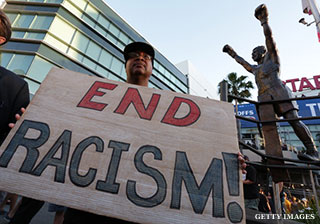
Yes, it is a problem Sterling was able to go on with his racism so long. Bomani Jones was right. Elgin Baylor was right. Clippers fans were right. The list goes on.
But the trend could be shifting. When a banana was thrown onto the field at Barcelona's Dani Alves last week, he took a bite. Villarreal, the opposing team, banned the fan from its stadium for life. In the midst of a playoff race, the Miami Dolphins suspended Richie Incognito for the remainder of the season. And now, Sterling is banned for life.
Silver confirmed the Sterling issue is #BiggerThanBasketball. He did not fear the power of an NBA owner worth more than $1 billion. Sterling's comments had nothing to do with on-the-court manners. His decision came from humanity.
Whether Silver's decision came from outside pressure or not, the decision is done. Donald Sterling is gone. The precedent for punishing racism is set.
What is that precedent? Don't be a coward.
-- Follow Jeffrey Eisenband on Twitter @JeffEisenband.

